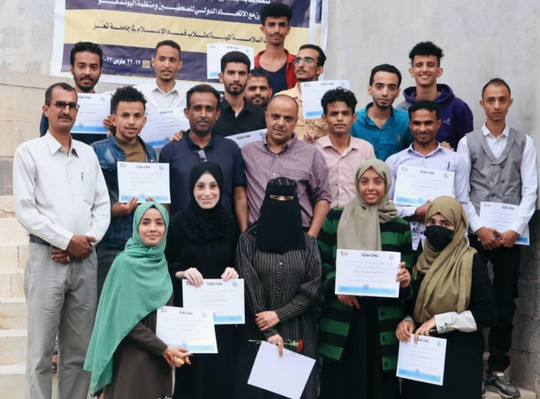The three safety courses, which included crucial safety principles and guidelines for conflict reporting, were jointly organised by the Media Department of Taiz University and the Yemeni Journalists' Syndicate, with the support of UNESCO, the Norwegian union of journalists and the International Federation of Journalists (IFJ).
Throughout the workshop, students received guidance on how to ensure their safety in conflict environments.
Student Adab Al-Sharabi said: “The course included important topics related to risk assessment, advance preparations and digital security for journalists. The knowledge shared was valuable and appropriate for Yemeni journalists living in a dangerous environment.” Al-Sharabi shared her hopes that occupational safety courses would be incorporated into university curricula.
The final activity of the week was a workshop involving Taiz University journalism professors and students, which focused on the modalities to incorporate the Model Course on Safety of Journalists into the university’s journalism education plan.
The Head of the Media Department, Dr. Mansour Alkadasi, said: “Universities and the education system as a whole bear a huge responsibility in ensuring that, from the start, journalism and media students are well prepared and have the tools to understand the risks they will be facing and the tools to mitigate them and ensure their own protection. This responsibility is even greater in the context of Yemen, where young journalists should be prepared to work in a conflict sensitive zone with higher physical and psychological threats.”
IFJ safety trainer Aboud Alsofi emphasised that the aim of the curriculum developed with UNESCO was to help academic institutions fulfill their responsibilities under the UN Plan of Action on the Safety of Journalists and the Issue of Impunity. He highlighted the role that institutions should play in raising awareness among students and encouraging academic research on the risks faced by journalists in the course of their work.

